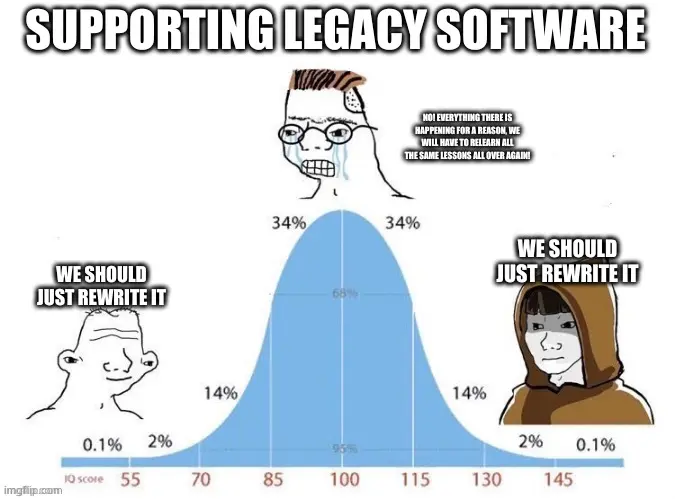Depends on whether you consider dark-patterns to be "lying". If a normal user would reasonably think that data isn't being collected based on the settings they chose, then is it dishonest for them to still be collecting data? Is it good enough for them to say "well we technically never said that disabling X disabled all the invasive functionality needed to do X."
teawrecks
Obviously a Google phone will be at least as bad, but I'm curious how de-googled Android forks like graphene would fare.
Side note: I hate it to my core when people copy code mindlessly
Get ready for the world of AI code assist 😬
Nothing in the comment I replied to indicated that apple wasn't allowing kernel-level anti cheat. It just says their apple client doesn't have it.
If running on an obscure platform avoids cheaters, that's still security by obscurity. I assume it's only a matter of time before the number of cheaters using that client grows to the point where they either have to invest in anti-cheat there, or cut support for the platform.
MacOS is not an open platform, so as long as apple support their efforts, they will be able to have kernel mode anti-cheat there when they want it.
Yeah, so it sounds like your complaint is actually with application not propagating relevant error handling information to where it's most convenient for you to read it. Linux is not at fault in your example, because as you said, it returns all the information needed to fix the issue to the one who developed the code, and then they just dropped the ball.
Maybe there's a flag you can set to dump those kinds of errors to a log? But even then, some apps use the fail case as part of normal operation (try to open a file, if we can't, do this other thing). You wouldn't actually want to know about every single failure, just the ones that the application considers fatal.
As long as you're running on a turing complete machine, it's on the app itself to sufficiently document what qualifies as an error and why it happened.

The difference between the idiot and the expert, is the expert knows why the fences are there, and can do the rewrite without having to relearn lessons. But if you're supporting a package you didn't originally write, a rewrite is much harder.
"0.001% of the time, I wanna know every time 👉😎👉"
Yeah, I get that. But are we talking about during development (which is why we're choosing between C and something else)? In that case, you should be running instrumented builds, or with debug functionality enabled. I agree that most programs just fail and don't tell you how to go about enabling debug info or anything, and that could be improved.
For the "Permission Denied" example, I also assume we're making system calls and having them fail? In that case it seems straight forward: the user you're running as can't access the resource you were actively trying to access. But if we're talking about some random log file just saying "Error: permission denied" and leaving you nothing to go on, that's on the program dumping the error to produce more useful information.
In general, you often don't want to leak more info than just Worked or Didn't Work for security reasons. Or a mix of security/performance reasons (possible DOS attacks).
Their post is a bunch of PR hidden by funnyspeak
I disagree, I think they said pretty plainly that they rely on security by obscurity, which is fundamentally at odds with an open platform that gives you control over your hardware. They're not wrong, they can take their shitty anti-cheat arms race and shove it.
I feel like this isn't what you were going for, but chill music is music to have thoughts to.
If you don't want to room to think, put on some Frontierer.
Yeah, the book felt like I was being beaten over the head with pop culture references...but then you open up VR Chat...
I feel like there was value in the predictions RPO was making, particularly at the time it came out, just before Facebook became Meta and basically made it their playbook. If the world ever gets so shitty that the friction of putting on a VR headset actually becomes preferable to doing literally anything else, I think it's a pretty believable future.
I've been running graphene for almost a year I think, and I haven't had to make any functional sacrifices. Though I was already not using Google's voice assistant features.